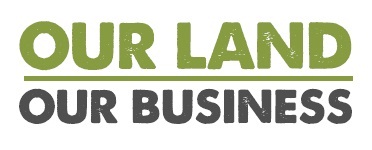Source: PACNEWS
November 21, 2014
The recent praise handed down to some Pacific Islands from the World Bank’s 2015 Doing Business rankings is sending the wrong message claims the Pacific Network on Globalisation (PANG).
The rankings compare the ease of doing business across countries compared to the world’s ‘best practice’.
“The latest rankings again display the absurd contest between countries to see who can be the most pro-business without any regard for what that real costs are for social, environmental, cultural or human rights,” commented PANG Coordinator Maureen Penjueli.
“It rewards countries lowering of social, environmental, cultural and human rights safe guards, therefore allowing the exploitation of natural resources and human capital by foreign investors and local elites” continued Penjueli.
The World Bank has singled out Palau, Solomon Islands and Vanuatu as countries who have undertaken reforms to encourage business growth over the last year.
“The rankings act to pressure small islands states in the Pacific to implement the reforms that major industrial economies currently enact. These are the same economies that used many of the domestic policies which the World Bank’s rankings would frown upon to in fact develop and nurture their local industries and capacities,” added Penjueli
Since 2002, through this annual publication, the World Bank has been benchmarking and ranking countries according to “the ease of doing business. The Doing Business is based on the principles of privatization, deregulation, low taxation for corporations, and ‘free market’ fundamentalism.
The rankings are again attracting criticism from the multi-continental campaign “Our Land Our Business” who challenge the legitimacy and mandate of the World Bank to issue such rankings. The international campaign is calling on the World Bank to stop pressuring developing countries such as Pacific island countries to free up land for investment and other activities that aim to ease the costs of doing business for multinational corporations.
Penjueli continued “there are no winners in the race to the bottom created by the Doing Business rankings, which are today’s version of the Structural Adjustment Programs that devastated livelihoods of millions of people through the withdrawal of state intervention and the forced liberalization of national economies in the 1980s and 1990s.”
“The many facets and connections that make up the Pacific reality, like custom control of land, sit opposed to this system of ranking the Pacific economies. It is not for the World Bank to come in and tell Pacific Islanders that becoming like the major economies is what is best for them, the World Bank has no right to do so” concluded Penjueli.
View Full Article at PACNEWS

World Bank rankings fail the needs of the Pacific – Pacific NGO
Source: PACNEWS
November 21, 2014
The recent praise handed down to some Pacific Islands from the World Bank’s 2015 Doing Business rankings is sending the wrong message claims the Pacific Network on Globalisation (PANG).
The rankings compare the ease of doing business across countries compared to the world’s ‘best practice’.
“The latest rankings again display the absurd contest between countries to see who can be the most pro-business without any regard for what that real costs are for social, environmental, cultural or human rights,” commented PANG Coordinator Maureen Penjueli.
“It rewards countries lowering of social, environmental, cultural and human rights safe guards, therefore allowing the exploitation of natural resources and human capital by foreign investors and local elites” continued Penjueli.
The World Bank has singled out Palau, Solomon Islands and Vanuatu as countries who have undertaken reforms to encourage business growth over the last year.
“The rankings act to pressure small islands states in the Pacific to implement the reforms that major industrial economies currently enact. These are the same economies that used many of the domestic policies which the World Bank’s rankings would frown upon to in fact develop and nurture their local industries and capacities,” added Penjueli
Since 2002, through this annual publication, the World Bank has been benchmarking and ranking countries according to “the ease of doing business. The Doing Business is based on the principles of privatization, deregulation, low taxation for corporations, and ‘free market’ fundamentalism.
The rankings are again attracting criticism from the multi-continental campaign “Our Land Our Business” who challenge the legitimacy and mandate of the World Bank to issue such rankings. The international campaign is calling on the World Bank to stop pressuring developing countries such as Pacific island countries to free up land for investment and other activities that aim to ease the costs of doing business for multinational corporations.
Penjueli continued “there are no winners in the race to the bottom created by the Doing Business rankings, which are today’s version of the Structural Adjustment Programs that devastated livelihoods of millions of people through the withdrawal of state intervention and the forced liberalization of national economies in the 1980s and 1990s.”
“The many facets and connections that make up the Pacific reality, like custom control of land, sit opposed to this system of ranking the Pacific economies. It is not for the World Bank to come in and tell Pacific Islanders that becoming like the major economies is what is best for them, the World Bank has no right to do so” concluded Penjueli.
View Full Article at PACNEWS